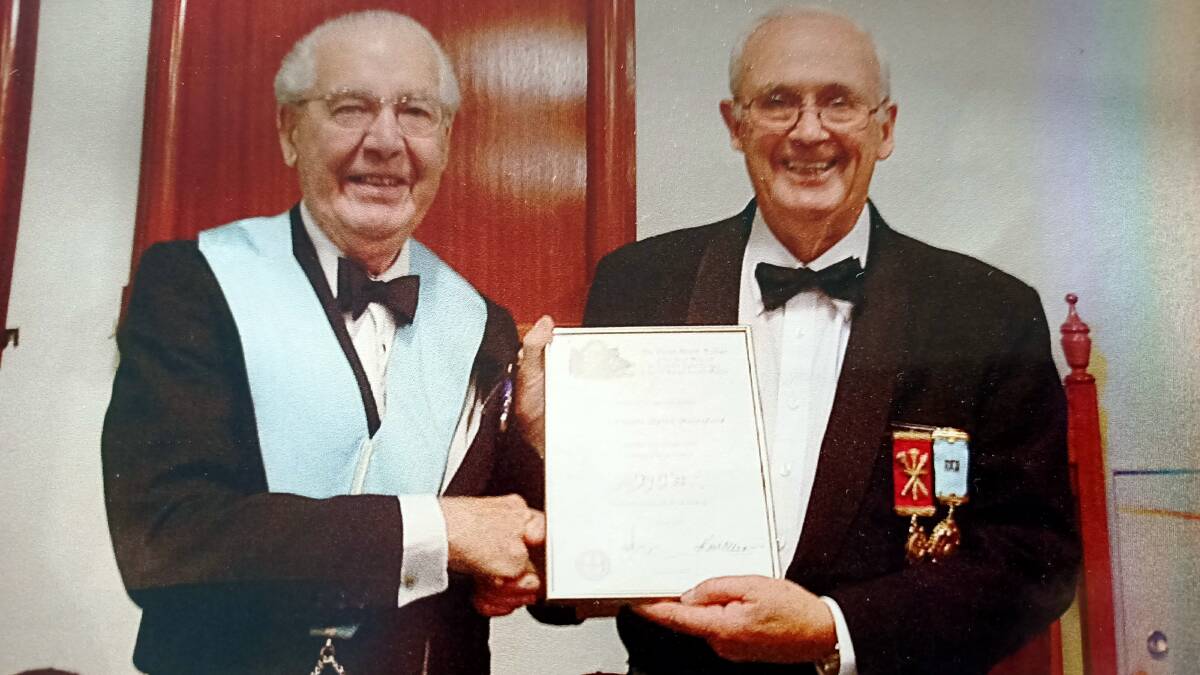Former Bega resident and regular BDN contributor Keith Beresford has been congratulated for 60 years of continuous membership to the Freemasons.
Subscribe now for unlimited access.
$0/
(min cost $0)
or signup to continue reading

Now living in Nowra, Mr Beresford was recently presented a jewel and certificate to mark the milestone.
Mr Beresford said he was introduced to Freemasonry by Reverend Thomas Whiting, then-rector of St John's Bega Anglican Church and a keen Mason.
"I joined Freemasonry in Bega in March 1962. I have since been a member of a number of lodges throughout NSW as I travelled during my working days," Mr Beresford said.
"I am currently a member of lodges Nowra Unity and Broughton (Berry).
"It is interesting to note that Bega Freemasons have been meeting continually for 127 years."
Freemasonry has its roots in ancient stonemasons and tradescraft. It's often considered a "secret society" by those not familiar with its workings, but Mr Beresford said promising to not disclose the signs and tokens of recognition among Masons was simply about keeping up a tradition of membership.
"Ancient stonemasons required apprentices and craftsmen to take vows not to reveal the modes of recognition which served as their passports to work, payment, food and shelters. This was to stop impostors trying to work in their trade.
"The tradition of recognition has been retained to distinguish if a person is a Mason, nothing else.
"It prevents non-Masons from entering a Masonic meeting. Today we have secrets such as PIN numbers and so on, much the same thing."
Busting another myth about the organisation, Mr Beresford said although four Australian Anglican bishops and other members of the clergy have served as Grand Masters, Freemasonry itself is not a religion.
"This myth about Freemasonry being a religion has been around for hundreds of years," he said.
"I must emphasise that religion is defined by its doctrine, stated usually in some creed or official theological statement. Freemasonry has no doctrine they must follow.
"What religion members subscribe to is their choice and is no one else's business.
"Masonry however advocates that without religion, a man is alone and lost, and that without religion, he can never reach his full potential. Members must be of a high moral standard must have a belief in a deity."
And while Freemasonry itself is not a charitable organisation, members put those high moral standards to good use, supporting numerous charities in their communities - aged care, youth welfare and disaster funds just a sample.


